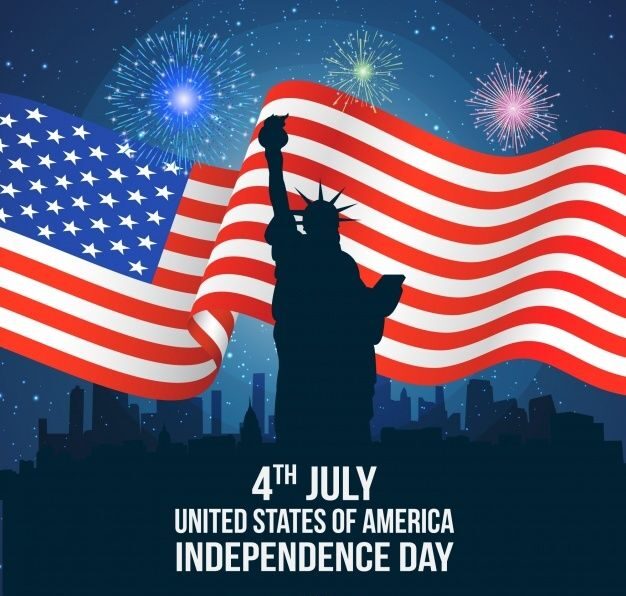🇺🇸 U.S. Independence Day (United States): History, Facts, Significance & Modern-Day Importance
U.S. Independence Day: Every year on July 4th, Americans from coast to coast come together to celebrate Independence Day, the birth of the United States as a free nation. With dazzling fireworks, patriotic parades, cookouts, and heartfelt tributes, it’s a day that stirs pride and reflection. But beyond the sparklers and barbecues lies a rich history and profound significance that continues to shape the American identity.
- 📜 History of U.S. Independence Day
- 📅 Timeline of Key Events
- 📊 Fascinating Facts About U.S. Independence Day
- ❓ FAQs: Frequently Asked Questions
- Q1: Why is Independence Day important?
- Q2: Is July 4th a federal holiday?
- Q3: Who signed the Declaration of Independence?
- Q4: How is Independence Day celebrated?
- Q5: What does the Declaration of Independence say?
- 🎆 Observance and Celebrations
- 💡 7 Powerful Reasons Why U.S. Independence Day Still Matters
- 1. Reminder of Freedom
- 2. National Unity
- 3. Civic Responsibility
- 4. Historical Reflection
- 5. Global Influence
- 6. Cultural Identity
- 7. Economic Boost
- 🎉 How to Wish Someone on Independence Day
- 🧠 Important Points to Remember
- 🌍 Importance in Our Life and Society
- 🧭 Conclusion: The Daily Life Impact of Independence Day
Let’s explore why July 4th is more than just a holiday, how it began, key historical facts, how it’s celebrated, and why its relevance remains powerful even today.
📜 History of U.S. Independence Day
How It All Began
Date of Declaration: July 4, 1776
Document Signed: Declaration of Independence
Key Author: Thomas Jefferson
Main Event: The 13 American colonies declared independence from British rule.
In the 18th century, tensions between the American colonies and Great Britain escalated over unfair taxation, lack of representation, and oppressive governance. In 1775, the Revolutionary War began, and after a year of bloodshed, leaders from the colonies convened in Philadelphia to chart a new course.
On July 4, 1776, the Second Continental Congress officially adopted the Declaration of Independence, a bold document that proclaimed the colonies as a free and independent nation, no longer under British rule.
📅 Timeline of Key Events
| Year | Event |
|---|---|
| 1775 | Revolutionary War begins |
| July 2, 1776 | Congress votes in favor of independence |
| July 4, 1776 | Declaration of Independence adopted |
| 1777 | First official Independence Day celebration |
| 1870 | July 4th declared a federal holiday |
| 1941 | Independence Day becomes a paid federal holiday |
| 2026 | 250th Anniversary to be celebrated grandly |
📊 Fascinating Facts About U.S. Independence Day
July 2 vs July 4: The actual vote for independence was on July 2, but the Declaration was adopted on July 4, which is why that date is celebrated.
John Adams prediction: Adams believed July 2 would be celebrated forever and refused to attend July 4th events later in life.
Three presidents died on July 4: Thomas Jefferson, John Adams (both in 1826), and James Monroe (1831).
Fireworks tradition: Fireworks were first used in Philadelphia in 1777 to celebrate the first anniversary.
Hot dogs galore: Over 150 million hot dogs are consumed on this day annually.
The Liberty Bell is not rung: Due to its crack, it is symbolically tapped 13 times.
$1 Billion+ spent on fireworks: Each year Americans spend over $1B on fireworks alone.
❓ FAQs: Frequently Asked Questions
Q1: Why is Independence Day important?
Answer: It marks the birth of the United States as a sovereign nation and celebrates freedom, democracy, and national unity.
Q2: Is July 4th a federal holiday?
Answer: Yes, it is a paid federal holiday in the United States.
Q3: Who signed the Declaration of Independence?
Answer: 56 delegates, including John Hancock, whose signature is the most famous.
Q4: How is Independence Day celebrated?
Answer: With fireworks, parades, patriotic concerts, family barbecues, and ceremonial speeches.
Q5: What does the Declaration of Independence say?
Answer: It asserts that all men are created equal, with inalienable rights to life, liberty, and the pursuit of happiness.
🎆 Observance and Celebrations
From Boston to Los Angeles, July 4th is marked by:
Fireworks displays (notably in New York, Washington D.C., and San Francisco)
Family gatherings and cookouts
Public readings of the Declaration of Independence
Patriotic parades and reenactments
Wearing red, white, and blue attire
Sporting events and live music concerts
Community flag-raising ceremonies
💡 7 Powerful Reasons Why U.S. Independence Day Still Matters
1. Reminder of Freedom
Freedom isn’t free—it was earned through sacrifice. Independence Day reminds us of that hard-won liberty.
2. National Unity
In a country with diversity of thought, race, religion, and culture, July 4th serves as a day to unite under one flag.
3. Civic Responsibility
The values of democracy and the rights outlined in the Declaration inspire greater civic engagement, like voting and volunteering.
4. Historical Reflection
It encourages younger generations to learn about the American Revolution, its leaders, and its ideals.
5. Global Influence
The American independence movement inspired other freedom movements worldwide, making it globally significant.
6. Cultural Identity
Fireworks, music, flags, and food traditions reflect the cultural heartbeat of the United States.
7. Economic Boost
Retail, tourism, and food industries see a major spike during the holiday season, boosting local economies.
🎉 How to Wish Someone on Independence Day
Here are some heartfelt and respectful ways to wish:
🇺🇸 “Happy 4th of July! Let freedom ring!”
🎇 “Wishing you a safe and sparkling Independence Day!”
🗽 “Proud to be an American. Happy Independence Day!”
🎆 “May your day be filled with pride, honor, and love for the nation.”
❤️ “Let us remember the heroes who gave us freedom. Happy 4th of July!”
🧠 Important Points to Remember
July 4 commemorates adoption, not signing.
It celebrates ideals: liberty, equality, democracy.
The celebration has evolved but its message remains timeless.
It is not about war, but about peace, identity, and unity.
🌍 Importance in Our Life and Society
In an age of globalization, social change, and political uncertainty, Independence Day holds renewed importance:
Teaches historical values of freedom and justice.
Sparks national conversations about rights and responsibilities.
Encourages peaceful celebration of diverse identities under one nation.
Reaffirms that democracy is a living process, not a static event.
Brings people together irrespective of differences—a unifier in times of division.
🧭 Conclusion: The Daily Life Impact of Independence Day
Independence Day isn’t just a holiday marked on calendars. It lives within every American, in the ability to speak freely, vote, worship (or not), assemble, and dream.
Whether you’re watching fireworks with family or reading the Declaration alone, the spirit of self-determination and liberty breathes life into your actions. It urges all generations to uphold the responsibilities of freedom, not just the privileges.
So next time you wear red, white, and blue, remember—it’s not just a color scheme. It’s the living story of a nation, bold enough to declare: “We the People.”









Does your website have a contact page? I’m having a tough time locating it but, I’d like to send you an email. I’ve got some recommendations for your blog you might be interested in hearing. Either way, great website and I look forward to seeing it improve over time.